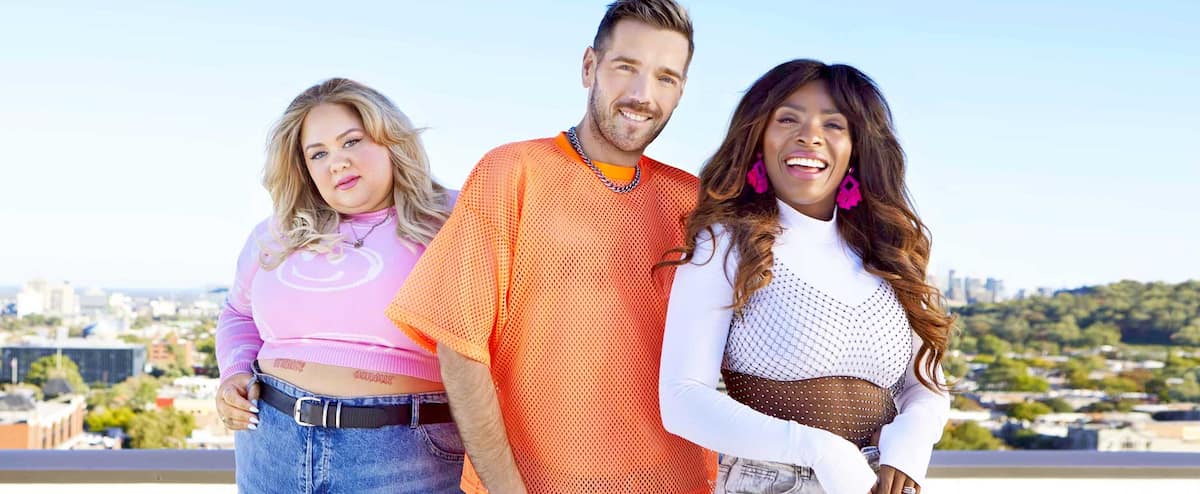Jordan is an all-rounder who combines media presence and social commitment. He worked first as a researcher, then as a journalist and also as a television and radio columnist. He makes a point of highlighting the LGBTQ+ community and addressing the issues of eating disorders and body image, struggles that have shaped his personality.
Photo courtesy of Uni TV
Jordan Dupuis
A speaker and author (a book to be published in 2024), he developed the series “On est render là” with his friend Anne-Lovely Etienne to offer models of the diversity he would have liked to have had as a teenager. It gives a voice to young people who engage in and normalize issues that are as unifying as they are divisive, a sign of how our society is evolving.
Why was it important in the series to meet young people and not just highlight positive social initiatives?
In the beginning the show was going to be called Proud and when we were shooting the pilot with a young transgender boy I asked him how he dealt with transphobia at school. He replied that there weren’t any and that there were even LGBT committees. We told ourselves that we had finally made it. Young people don’t have to assert themselves, they just exist. It is an extraordinary lesson for other generations. It is a youth that lives with the consequences of previous generations and is responsible for the agents of change. We don’t give them enough space. We wanted a place where we could create bonds of pride and authenticity. It is the lack of communication between the generations that divides. We also travel all over Quebec, Northern Ontario and Prince Edward Island because the reality is not the same but the need for models is there.
We feel that each of you (Jordan and Anne-Lovely co-host with Vanessa Duchel) are personally challenged by the approach of the young people you meet. How are job interviews assigned?
It was very important to me and gives me quite a headache. They are mostly human stories. There are three meetings, a more traditional one, an immersion meeting and one that challenges us. We are not stars and our way of being integral to this show is through our experience, dedication and authenticity. The issues challenge us. For each episode we had about twenty interesting young people, but we chose those we could connect with. We wanted to go somewhere else and be inclusive. We really had a crush on each other. We are still in contact with some of them. Above all, it is our responsibility that they expose themselves.
What needs We got there does he answer?
When you’re told as a teenager that your universe is the one you’ll have for eternity, that’s not true. Things, life, society are in motion. Your difference will be your greatest strength. I would have liked a genuine listening and validation.
They make space for social media. Why was it important to communicate good initiatives?
We are all responsible for our digital universe. It’s a continuation of the models we would have liked to have had. A young person can follow Kylie Jenner and an activist against fatphobia and vector of change. It also feeds the algorithms. We also had the opportunity to create a podcast to discuss the issues with specialists and give them a “service” touch.
What did you learn from the series?
The topics that appealed to me the least, such as entrepreneurship, taught me a lot. Playing basketball with a young man who has muscular dystrophy was like stepping back in time to when I was 14 years old, when I wasn’t selected for gym class. It wasn’t the sport that I disliked, it was the lack of inclusion. I went to the region to grow vegetables with a 22-year-old deaf farmer who runs his own farm. He was often told that he was worthless, but with the support of his parents, he overcame the obstacles. In the episode about religion, I, the apostate, cried. Being included has allowed me to cope with a lot of things.
We got there Friday, 7 p.m. on Unistv Find out more on the website of TV5unis.ca

